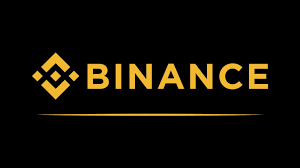A DISPUTE over cryptocurrency regulation in Nigeria has reignited as Binance’s Head of Financial Crime Compliance, Tigran Gambaryan, challenges the Central Bank of Nigeria’s (CBN) claims of a $26 billion outflow through the platform.
The former Binance executive, who spent eight months in detention before leaving Nigeria in October 2024, insists the figure was misrepresented and had nothing to do with illicit financial flows.
The Explainer gathered that Gambaryan, who was arrested alongside his colleague Nadeem Anjarwalla in February 2024 on allegations of money laundering and tax evasion, has now publicly rejected the CBN’s narrative. In a post on X (formerly Twitter) on Friday, he argued that the $26 billion referenced by the CBN was a misinterpretation of trade volume rather than actual funds leaving Nigeria.
What Happened with the $26 Billion?
In February 2024, CBN Governor Olayemi Cardoso stated during a post-Monetary Policy Committee briefing that Binance Nigeria had processed transactions worth $26 billion from unidentified sources. The announcement fueled regulatory pressure on cryptocurrency exchanges operating in the country and intensified scrutiny of Binance’s activities.
“We are concerned that certain practices go on that indicate illicit flows, going through a number of these entities and suspicious flows. In the case of Binance, in the last year, $26bn has passed through Binance Nigeria from sources and users who we cannot adequately identify,” Cardoso stated at the time.
However, Gambaryan has now dismissed the assertion as misleading, explaining that the amount represented cumulative trade volume—a standard measure in financial markets that includes repeated transactions of the same funds.
“The $26bn figure they kept pushing publicly as some mystery money escaping Nigeria is complete ‘bullshit.’ This information was provided in response to their request and was simply cumulative trade data for Nigerians on the platform,” he wrote.
Gambaryan further explained, “This money didn’t leave Nigeria—it was just people buying and selling crypto. For example, if you trade $100 a hundred times, that’s $10,000 in trade volume, but in reality, you only used $100. Again, just another example of them lying to cover up their ‘bullshit’ investigation.”
The Explainer notes that Binance’s regulatory challenges in Nigeria escalated in early 2024 as the government intensified its crackdown on cryptocurrency platforms. Authorities expressed concerns about crypto exchanges being used for illicit transactions, a claim that was reinforced by reports of forex market instability and rapid fluctuations in the value of the naira.
Binance eventually pulled out of the Nigerian market in March 2024, following increased scrutiny. The decision coincided with the detention of Gambaryan and Anjarwalla, both of whom had travelled to Nigeria for discussions with government officials regarding Binance’s operations. While Anjarwalla later escaped custody, Gambaryan remained in detention until October 2024, when he was released due to deteriorating health conditions and diplomatic pressure.
In his recent comments, Gambaryan accused Nigerian authorities of using Binance as a scapegoat for the naira’s devaluation, which he argued was a direct consequence of the government’s economic policies.
ALSO READ: End of an Era: Ayo Adebanjo, Afenifere Leader Passes Away at 96
“They all knew that the naira’s devaluation was a direct result of Tinubu’s monetary policy, which depegged the naira from the dollar. I’m not saying this policy decision was wrong, but everyone understood that removing government intervention would lead to extreme devaluation. Instead of acknowledging this, they used Binance as a scapegoat,” he stated.
The devaluation of the naira followed the federal government’s decision in mid-2023 to allow market forces to determine exchange rates, effectively ending years of forex controls. The move initially led to a sharp decline in the naira’s value against the dollar, with inflationary effects felt across various sectors.
While Nigerian authorities have consistently warned against the risks associated with cryptocurrency trading, including money laundering and fraud, digital assets remain popular among young Nigerians seeking financial alternatives amid economic uncertainty.
According to data from Chainalysis, Nigeria ranked among the top 10 countries in global crypto adoption in 2023, driven by peer-to-peer transactions and the increasing use of stablecoins to hedge against currency fluctuations.
Despite Binance’s exit, crypto trading continues to thrive in Nigeria, with alternative platforms and decentralised exchanges filling the gap left by Binance’s departure.






















